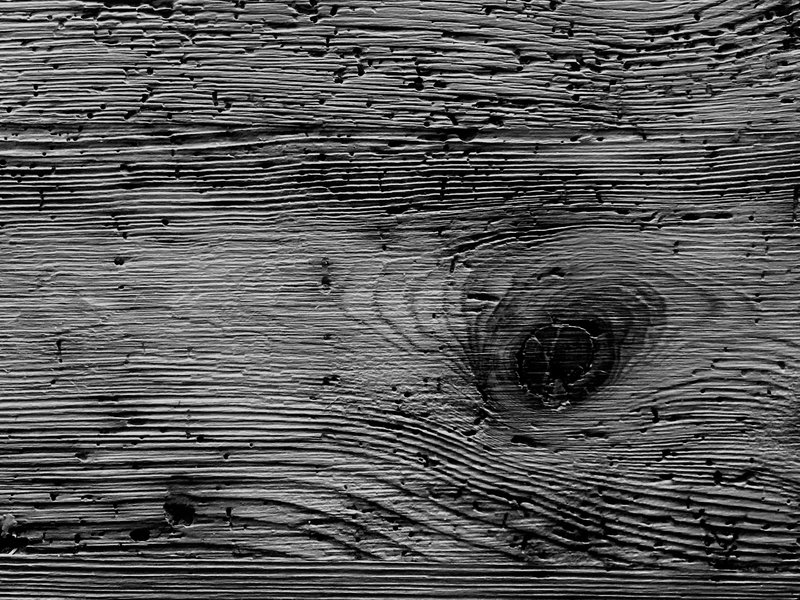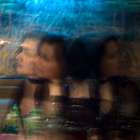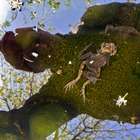Start from not knowing...
Posted Dec. 4, 2020 by Maja KuzmanovićMarking the 20th Anniversary of the Art Center Nabi in Korea, I was invited to join a conversation about the things Nabi sees as important for our shared future – Art, AI and Everything Else. This post is a transcript of my talk and can be read as a suggestion. A suggestion that when you engage with art, AI and everything else, that you can "start from not knowing" and "start from where you are".
Start from not knowing
All I know, is that I know nothing —Socrates (as quoted, paraphrased or misattributed)
Starting from not knowing is one of the cornerstones of the creative process, in the arts, science and technology. Creativity emerges from not knowing where you'll end up, or how to get from here to there. AI, and the computational processes associated with it, also start their existence not knowing. Understanding of the world gradually builds, based on programmers' decisions, and the programme's interactions with its environment. And as for "everything else"? What we do know, is that there is so much of the universe that is still unknown and that most of it will remain unknowable.
Starting from not knowing can stimulate curiosity about the world, about each other and about how things could be. Yet, not knowing can also be a source of anxiety, or fear of the unknown. In techno-materialist cultures, the unknown is often seen as a territory to be conquered. It's seen as a problem to be studied, dissected and solved. To be made known, to be understood. This approach can work well when problems are acute and clearly defined, but it is rarely as effective for the ambiguous, complex, or chronic conditions in which we find ourselves today.
For example, despite our deep understanding of viral infections and transmission, the current pandemic has made it painfully apparent that we can still be thrown off-course by forces beyond our control. How can we contend with such forces? Traditionally, this was the domain of magicians, priests and shamans, where communing with forces outside of 'consensus reality' occurred. More recently, contending with the forces of change has become the domain of scientists and engineers, politicians and social media influencers, but also algorithms and learning machines. And, as Arthur C. Clarke said, "any sufficiently advanced technology is indistinguishable from magic". So, should we take this as a sign of encouragement, a simple statement of fact, or as a warning?
Another aspect of the magical realm can appear during uncertain times. When lives and livelihoods are at stake, when our agency seems diminished, deceptive forms of magical thinking can more easily gain power. Conspiracy theories and dogmatic certainty often emerge during crises and upheavals, like those we have seen this year. They are a demand for certainty in a storm of change. Remember the aphorism "For every complex problem there is an answer that is clear, simple, and wrong." How can we tell the difference between real danger and the fear of losing the familiar? How can we distinguish between the openness of "beginners mind" and the ignorance of a "closed mind"? How do we respond to not knowing with curiosity rather than fear?
A simple, but not always easy starting point is to pause and to listen. To practice the craft of noticing. Not knowing makes us more humble and more vulnerable. In the ongoing dance between not-knowing, learning and understanding, we can become more receptive to other ways of being. Other ways of inhabiting the universe. If we allow ourselves to pause and listen, we might hear voices of those that are otherwise unheard. Other people, other lifeforms, other entities. All of whom are already agents of change, and thus capable of influencing the course of our lives.
In the context of both Art & AI, it matters how we engage with forms of agency that are different to ours. Agency, in this sense, is a capacity to experience, to learn and remember the environment, so that one can adapt one's behaviour in response. Animals, plants, fungi, and microorganisms can all relate to and influence their environment. They engage with each other in particular ways that we might never notice. Our AIs are simple in comparison, but may develop to experience realities that are incomprehensible to us, because they're so different from our own. Protein folding, black holes, life on Mars...
If matter has some form of agency, rather than us speculating about the nature of reality, could reality itself tell us? Could we understand what it was telling us? The arts are a natural habitat where such questions can be cultivated and explored. We can take a hypothesis and develop it in an artistic medium. We can experience the world from different perspectives. As artists, our role is to create lures for other worlds, for things that might be. We need to be realists, as Ursula Leguin said, but we need to be "realists of a larger reality".
Start from where you are
While artists approach the worlds of the possible, our AI on the other hand, can only approach the world "as is". Their worldview is normative. They start from where they are. If they are programmed (or trained) to see the world as hostile, they will search for enemies everywhere. If they know the world as a city, they will see mountains as skyscrapers, rivers as streets.
Engaging with an AI can lead to surprising and sometimes hilarious situations. They can reflect our own biases and misunderstandings back at us, with the unpolished ruthlessness of a child. We can watch how our seemingly innocent instructions are taken to logical extremes, or mutated and distorted into caricatures of our own worldviews.
Think of deep fakes, AI-enhanced racial profiling, the endless style-transfer of van Gogh, GPT-3 poetry, or the recipe for "Chocolate Chicken Chicken Cake".

A worldview depends on interaction with other entities, human and otherwise. In order to know the world as the messy, heterogeneous place where so many contexts overlap, an AI would need to be trained to see it that way. So we cannot leave the sole responsibility for building and training AI to corporate entities, primarily motivated by profit and growth, or to Governments who may prefer control to understanding. There needs to be more diversity, more edge cases, more ways in which we can engage the demos in the messy, complicated process of design, care and feeding synthetic sentiences.
We can interact with AI as collaborators, as von Humboldt did with his instruments, and watch what they're reflecting back at us. We can engage with AI through feedback loops and mutual influence. This requires patience and ongoing trial and error, but the process can reveal things about ourselves and the world that we might not have noticed otherwise.
Perhaps, if we too start from where we are, we can begin to see the world anew.
This kind of engagement doesn't need to be limited to humans and AI. We can engage with other fellow Earthlings in similar ways. With animals, plants, cities, seas and other forms of matter. What would the world look like if we shifted our perspective so that human life is further from the centre of view?
This process demands a deepening of our capacity for receptive awareness.To deeply listen and hear these voices, even if we might not be able to understand them. Our bodies can become antennas, or listening devices or human-sized resonance chambers. Our technologies can extend our ears to the size of the Earth. They can entwine our human ears with plant ears, insect ears, ears made of dust, or the antennae of aeroplankton.
Why would we want to experience the world in such a manner? Isn't this just some poetic flight of fancy, or maybe a backstory for a science fiction novel? I don't think so. I think that experiencing the world as inhabited by interacting, entangled agents capable of change can become a way of being with them more closely. A beginning of a shift towards understanding, and maybe mitigating the devastating effects humans have had on the world and those that live within it.
During the current pandemic, a time of social isolation and physical distancing, what would it be like to engage with all forms of matter as members of a pan-demos? You might feel lonely, but you're definitely not alone. Starting from where you are, appreciate all that is around. Can you expand the experience of sociality to include other than human encounters? You're touched by and in touch with millions of other entities at this very moment. Just by having a body you're always touching and being touched.

The table I'm leaning on, for example, is not only a piece of furniture to eat or work on. It is an entity with its own history, its own ancestry. It connects me to the tree its wood came from and the forest in which the tree grew. It connects me to the people who cut the tree and made the table. As it's made from recycled wood, it connects me to its previous life as a wooden beam in another house and to those who lived around it. It certainly connects me to many other things that I don't know about.When I oil the wood, its surface responds with vibrant colours and smooth textures. It might look like an inanimate object, but it can be so much more, if I allow myself to be receptive and curious, careful and attentive. My relationship to this table suggests a different kind of togetherness with the other and the unknown. It's a deliberately hesitant engagement with other entities on their own terms. It's a domestic kind of “ecological intimacy”.
Starting from a place of not knowing, starting from where we are and taking the time to attune to what is around us could seem slow or ambiguous - especially when we consider the urgency of our times. True, such attunement may not provide a “way out” of our troubles, but perhaps finding a way out is impossible. Instead, attunement offers a “way in” to deeper and closer connections with life, in all of its nuances and intricacies. Attunement accepts human interdependence with the planet as a given. It reminds us that a mutualistic or symbiotic state of being in the world is not only possible but already present.
You are here. And, even though you might be physically distant, you belong to many places, many people and many beings at once. Art, AI, Everything Else. From the space between the cells to the space between the stars.
For the event at nabi on the 3rd of December 2020, I ended my talk with being silent for one minute.
Here's a description of the exercise, if you'd like to try it out yourself during one of your online meetings or events.
Turn off all your cameras and turn on all your microphones.
Take one minute to listen to each other's spaces without talking. Listen to the collective space as created and transmitted by algorithms. Within the silence, listen for the tiny sounds in the foreground or background, to the echoes of unseen gestures, to the beings existing in those distant spaces, to the glitches, delays and other digital artefacts that give texture to your unique experience, an experience that will never repeat again. And while you listen, see what it's like to appreciate the many quiet presences, near and far.
Created: 15 Jul 2021 / Updated: 29 Oct 2021











